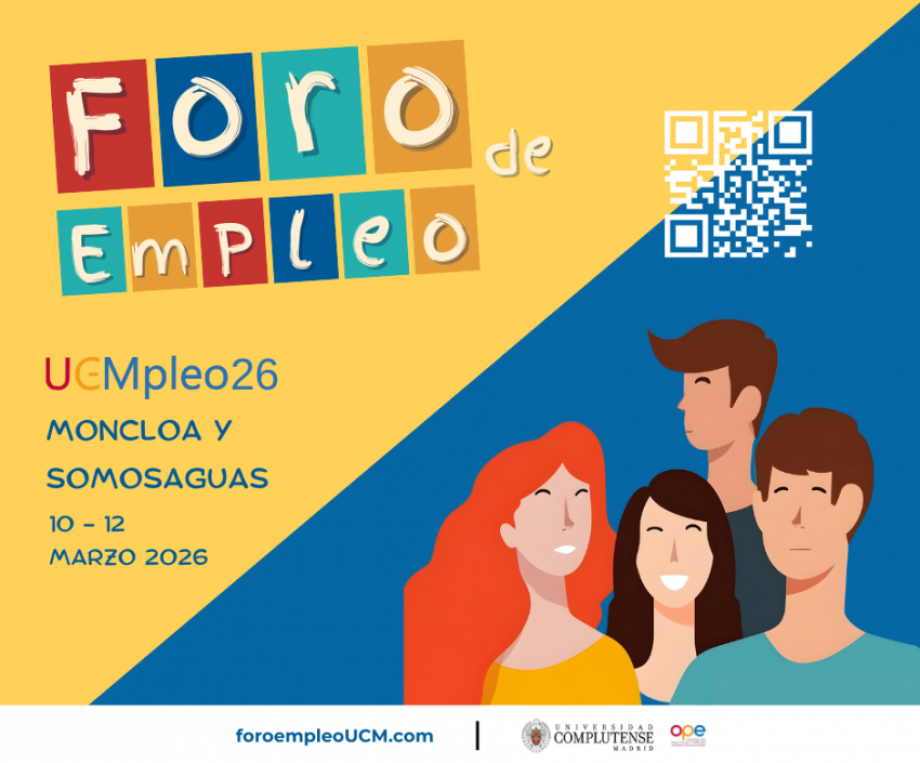Carrousel - Noticias secundarias 1
La UCM, categoría QS 5 STARS
UniversiDATA, Premio ASEDIE 2025
Carrousel - Noticias secundarias 2
¡Inscríbete!
Apertura extraordinaria de la Biblioteca María Zambrano
Noticias
- Diego Villa Lázaro, estudiante de Bioquímica, ganador de la IV edición de Monólogos de Ciencia Complutense
- 211 científicas y científicos complutenses, entre los más influyentes del mundo, según el ranking de Stanford 2025
- Cuestionario de Autoevaluación sobre convivencia y cuidados en Colegios Mayores
- Informe del rector sobre la situación económica de la Universidad en Consejo de Gobierno
- Idiomas Complutense. Matrícula abierta hasta el 31 enero 2026
Agenda

-
21 enero
-
26 enero

-
27 enero
-
29 enero
-
11 febrero
-
10 marzo
Estudia con nosotros
Cultura Complutense
Investigación UCM
Deporte UCM
Recursos
Imagen destacada
Competiciones deportivas
Destacados
Unidad de Cultura Científica UCM
Complutense Saludable
Fundación Complutense
Más Destacados
- Elecciones a representantes de los Sectores de Resto de Personal Docente e Investigador, Estudiantes y Personal Técnico, de Gestión y de Administración y Servicios en Consejo de Departamento
- Elecciones a representantes del Sector de Estudiantes en Consejo de Departamento
- Elecciones a representantes de los Profesores Asociados de Ciencias de la Salud en Consejo de Departamento
- Acceso remoto a servicios
- Certificados de Retenciones IRPF










